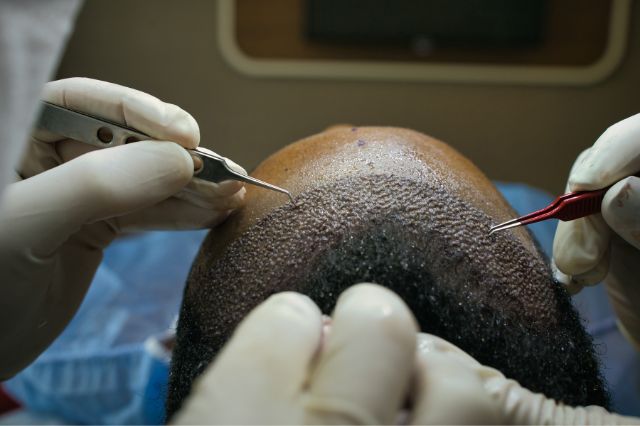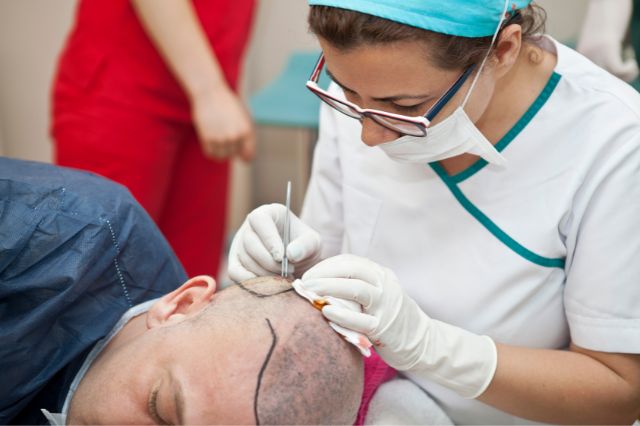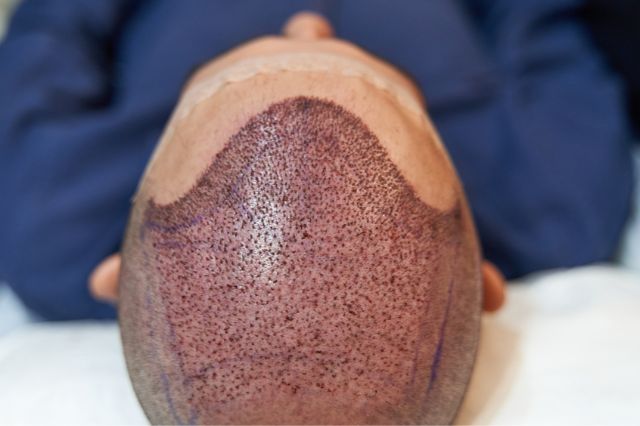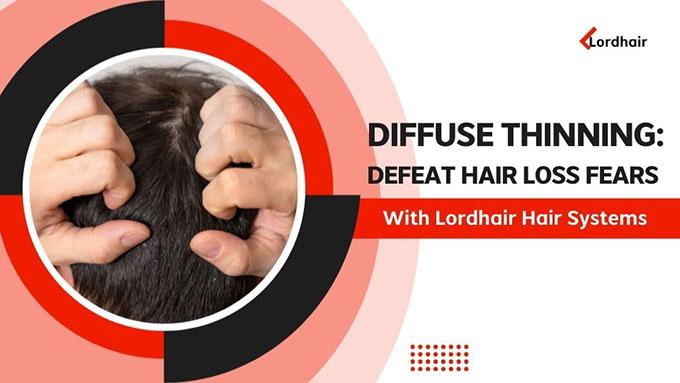8 Hair Transplant Complications to Consider Before Going Under the Knife
- Written by Vivek Khullar
- | Published Oct 18, 2023
- |
- 4 min read
 Listen to the full text
Listen to the full text
Hair transplants are a popular and more well-known alternative to hair systems but the risks associated with them are much bigger. For those who don’t know, hair transplant is a common term used for a range of surgical procedures that help men and women address pattern baldness and sometimes also medical hair loss.
Hailed as a great medical treatment to get back lost hair, hair transplants do have some side effects and complications that are hard to ignore. Since we are in the hair gain business, it makes sense to create awareness about hair transplant risks and complications.
In this blog, Lordhair will share all the minor and major complications of hair transplants. Believe us when we say plenty of people who have gone under the knife for hair have experienced at least one of these side effects!
Let’s start, shall we?

8 Hair Transplant Complications to Watch Out For
Below are the major complications that men and women can face after getting a hair transplant:
Swelling
Swelling is pretty common after getting a hair transplant. While doctors make the patients aware of this hair transplant side effect beforehand, it can sometimes last longer than expected. In some cases, forehead swelling can last for many days after a hair transplant session. In rare cases, swelling and bruising on the lower eyelids can also happen.
It is best to visit your doctor if you see a lot of swelling on your forehead or around your eyes.
Bleeding
Bleeding is also counted as a common hair transplant occurrence. It usually happens after surgery around the donor area but excessive bleeding during or after the surgery is a complication. Applying constant pressure with the palm of your hand for up to 10 minutes can help you stop the bleeding.
Roughly one out of a hundred cases face this complication after having a hair transplant.
You may also be interested in these hair loss resources as well:
- Possible reasons and treatments for hair breaking and falling out
- Hormones causing hair loss in men and women
- Best hair loss treatments for men and women
- Everything about MSM for hair growth
Pain
It is common to experience some kind of pain or discomfort in the days immediately following the surgery. Surgeons prescribe pain medication at the end of the surgical procedure to help patients get rid of this pain. Half of the patients, however, do not tend to require any pain relief.
In rare cases, hair transplant patients may face pain or discomfort for long periods after the surgery, signaling the surgery wasn't a runaway success. This is a major reason why people with low pain tolerance stay away from hair transplants.
Scarring
Scarring of the donor area is probably the scariest complication of a hair transplant. While this side effect is not very common, a lot of men have experienced such an issue and have also shared their stories over the internet. Feel free to Google ‘hair transplant scarring’ to come across some photos and videos! You might want to brace yourself!

Numbness
Numbness in the donor or recipient area can occur. While it is usually temporary, it can last from three to 18 weeks in some cases. The numbness typically occurs due to nerve irritation during the procedure.
A common side effect of hair transplants, numbness is usually not a troubling hair transplant complication. So, this is not something a lot of people worry about.
Infection
Almost every surgical procedure carries the risk of infection. In hair transplants, the chances of infection are there as well. That’s why it is important to keep an eye out for tenderness, redness, and other signs of infection.
The good news is that antibiotics can help with quick recovery from any infection-related hair transplant complication. Consult your surgeon if you notice a scalp infection cropping up.
Thinning of pre-existing hair
After surgery, some pre-existing hair may start to fall out as a hair transplant complication. Thinning of pre-existing hair is normal post-transplant. While the lost hair usually returns to normal within a few months, hair loss sufferers often get worried when they notice the same.
Itching
The hair transplant area may become itchy during the healing process. Therefore, it is important to follow the guidelines shared by the doctor overseeing the hair transplant. Hair experts recommend not to scratch the recipient area as it can damage the hair grafts.
While an itch can be irritating at times and lasts for a few days, it is very rarely troublesome. Washing the hair daily will help you reduce the discomfort caused by hair transplant.

Recover Hair Without Transplant Complications
While hair transplant has its share of flaws, its biggest drawback is that it doesn’t check future hair loss. That means if you fix your receding hairline with a transplant and are happy about it, there is no way to be sure that you won’t start losing the hair around the crown in a year or two. A lot of young people who get a transplant later face this issue.
In comparison, hair systems - also known as men’s wigs, toupees, and men’s hairpieces - are safe. For those who don’t know, a hair system offers coverage to the bald region and delivers a youthful look in an instant. Listen to this Spotify podcast for a quick explanation of hair replacement systems.
Have any questions about hair systems? Drop them in the comments to get a quick reply from our team of hair experts.



